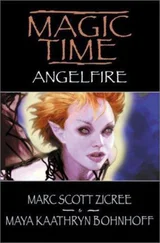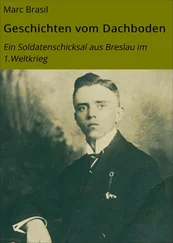Marc Zicree - Ghostlands
Здесь есть возможность читать онлайн «Marc Zicree - Ghostlands» весь текст электронной книги совершенно бесплатно (целиком полную версию без сокращений). В некоторых случаях можно слушать аудио, скачать через торрент в формате fb2 и присутствует краткое содержание. Жанр: Фэнтези, на английском языке. Описание произведения, (предисловие) а так же отзывы посетителей доступны на портале библиотеки ЛибКат.
- Название:Ghostlands
- Автор:
- Жанр:
- Год:неизвестен
- ISBN:нет данных
- Рейтинг книги:3 / 5. Голосов: 1
-
Избранное:Добавить в избранное
- Отзывы:
-
Ваша оценка:
- 60
- 1
- 2
- 3
- 4
- 5
Ghostlands: краткое содержание, описание и аннотация
Предлагаем к чтению аннотацию, описание, краткое содержание или предисловие (зависит от того, что написал сам автор книги «Ghostlands»). Если вы не нашли необходимую информацию о книге — напишите в комментариях, мы постараемся отыскать её.
Ghostlands — читать онлайн бесплатно полную книгу (весь текст) целиком
Ниже представлен текст книги, разбитый по страницам. Система сохранения места последней прочитанной страницы, позволяет с удобством читать онлайн бесплатно книгу «Ghostlands», без необходимости каждый раз заново искать на чём Вы остановились. Поставьте закладку, и сможете в любой момент перейти на страницу, на которой закончили чтение.
Интервал:
Закладка:
It elated him, and scared him, too.
The letter of introduction Ely Stern had brought with him all those months back-along with the first delivery of prime gemstones-had been written in a delicate, almost feminine hand. But the power it promised, the secrets of the universe it offered to reveal in the fullness of time, had been anything but demure.
The driving force, the intellect behind all of this, was brilliant, sublime, commanding-a mind undeniably beyond anything human history had previously produced.
It has come to my attention, the letter began, that you have been embarked on a line of research that might yield considerable benefit, were it combined with several areas of inquiry and experimentation in which we ourselves have recently excelled.
The letter was signed Marcus Sanrio.
And it invited Jeff Arcott to collaborate.
In the letters and breathtakingly original designs that followed, Sanrio had taken Arcott’s initial work and built on it in a way that was mesmerizing, counterintuitive and unexpected-but, in hindsight, undeniably correct in its assumptions and execution.
Arcott had given himself over to its siren song, and followed where it led.
This much he knew, or at least had been able to read between the lines: for reasons unknown and unstated, Marcus Sanrio, the greatest thinker of the twenty-first century (and who always in correspondence oddly referred to himself in the royal we ), had been previously unable to join Arcott here in person. But via the Spirit Radio and the instantaneous matter transmission it permitted, Sanrio would soon be with him.
Then the pace of the work would accelerate to a phenomenal degree. And this post-Change world would no longer signal the arrival of a new Dark Age of suffering and ignorance; no, with Sanrio and himself at the forefront, the wild energies let loose on the earth would be tamed and brought into orderly service to mankind. It would be the dawn of a new Industrial Revolution, one that made the pace of the first look leisurely by comparison.
Thus far, Arcott had merely been able to apply a few of Sanrio’s principles in order to recapture some of the technology that had been lost, a pallid replication of the old ways of the world. Soon, however, very soon, they would be able to eclipse those accomplishments, create a new understanding and application of that understanding that would allow remarkable new strides.
A rebirth, a renaissance, an enlightenment; a total redefinition of virtually everything, starting most importantly with men’s minds.
It was the way of things, Jeff Arcott recognized.
With his laws of motion in the Principia Mathematica, Isaac Newton had defined a coherent, observable cosmos around him, the natural world for all to see. But he little dreamed of the transcendent gospel that Einstein would unveil several centuries hence, the crazy-but-true universe where matter and energy were equivalent, gravity bent light, and velocity defined the pace of time; moreover, that the universe was a hyperbolic paraboloid and, wherever you went, if you traveled long enough you invariably arrived back where you started.
The epiphanies Marcus Sanrio’s line of inquiry promised were every bit as profound and disconcerting as Einstein’s; more so.
Sanrio, with his self-reverential double pronoun and unwillingness to travel via any method but the Spirit Radio, might be a major eccentric and fucking pain in the ass, but hell, Einstein never wore socks or got a haircut, and it only added to his charm.
What mattered was what you thought, and what you did.
Together, he and Sanrio had brought this town back to life again, and now they would open the door to a radiant new future.
Sanrio and Arcott. Nothing wrong with being the number two man, nothing at all…
Arcott thought of Nils Bohr, whom the building he was standing within was named for. He had not been the prime innovator but rather a follower of Einstein, a willing hand that put the breakthrough concepts to practical use; still, Bohr had walked away with his own Nobel Prize.
Arcott tore his gaze away from the lights that writhed like cobras under the spell of a fakir’s music, and glanced over at Theo Siegel, who was just tightening the connection on the final bus bar. Theo thought he was the number two man. All well and good; no reason to disabuse him of that notion until everything came off as planned. Melissa Wade hovered nearby, monitoring the minute fluctuations of current, the pressure variances of the vacuum with its frisson of argon, at a billionth of an atmosphere a mere ghost thrown in for seasoning.
As Marcus Sanrio had written on many an occasion, there was room for everyone.
Arcott glanced at his gem-encrusted digital watch. Twenty minutes earlier, at Rafe Dahlquist’s request for a break and a bite of lunch, he’d dispatched him under guard to the lab’s kitchen several doors down. But neither had returned, and time was marching on.
“Flag a guard out in the hall to fetch Dahlquist,” he told Theo. “It’s high noon.”
Theo nodded and sprinted to the heavy steel door, muscled it open and stepped through.
It was only moments before he returned, walking backward, hands raised timorously over his head.
The guards, unarmed now, followed him, and behind them came Cal Griffin and a good many others, hefting sparkling, gem-augmented ought-thirties and nine-millimeters they could have liberated from nowhere but the armory.
Arcott was incredulous; the armory was guarded by his most loyal men, its computer lock triple-encoded. To get in there, a man would have to be able to walk through walls.
(Which, he found out soon enough, was precisely what Herman Goldman-who himself was nowhere to be seen-had done.)
Cal Griffin strode up, and Arcott saw now that Rafe Dahlquist had entered behind him.
“Little change of plan, Jeff,” Griffin said.
Then Dahlquist unlocked a storage cabinet and got out the damping equipment.
THIRTY-FOUR
“Y ou’re gonna fucking ruin everything.”
Theo Siegel had to admit it was the first time he’d ever seen Jeff Arcott lose his cool, and it wasn’t a pretty sight.
But then, being held at gunpoint and watching someone take over your big nasty toy was likely to spoil anyone’s day.
Jeff had ranted awhile and then, seeing Cal Griffin wasn’t inclined to listen to Jeff’s version of reason, had settled down to a hateful silence. Griffin’s guards covering him, Jeff stood leaning against a wall, smoking a cigarette and glaring at the assembled throng-all except Theo, whose glance he contemptuously avoided.
Theo felt jettisoned; his stomach hurt and his insides were ashes. But then, he figured he probably rated such treatment.
At first, Theo had tried to act surprised by the invasion, but he’d always had a lousy poker face and, after a few moments, had set about actively aiding Griffin’s troops.
Not that they’d needed much help. Under Rafe Dahlquist’s direction, Colleen Brooks and two other of Cal Griffin’s followers-who introduced themselves as Al Watt and Mike Kimmel-had efficiently set about getting the dampers wired up and spaced around the hundred-meter-long resonance chamber. Theo noted that Griffin’s other lieutenants, Doc Lysenko and Herman Goldman, were nowhere to be seen; on duties elsewhere, no doubt. But Griffin clearly had made his plans well, and brought the personnel he needed.
Theo found he couldn’t keep still; he kept pacing, making note of this piece of equipment, that calibration and setting…all by way of avoiding the one person he knew he would have to face.
Finally, he turned her way, found himself snared by her beautiful, betrayed eyes.
Читать дальшеИнтервал:
Закладка:
Похожие книги на «Ghostlands»
Представляем Вашему вниманию похожие книги на «Ghostlands» списком для выбора. Мы отобрали схожую по названию и смыслу литературу в надежде предоставить читателям больше вариантов отыскать новые, интересные, ещё непрочитанные произведения.
Обсуждение, отзывы о книге «Ghostlands» и просто собственные мнения читателей. Оставьте ваши комментарии, напишите, что Вы думаете о произведении, его смысле или главных героях. Укажите что конкретно понравилось, а что нет, и почему Вы так считаете.












